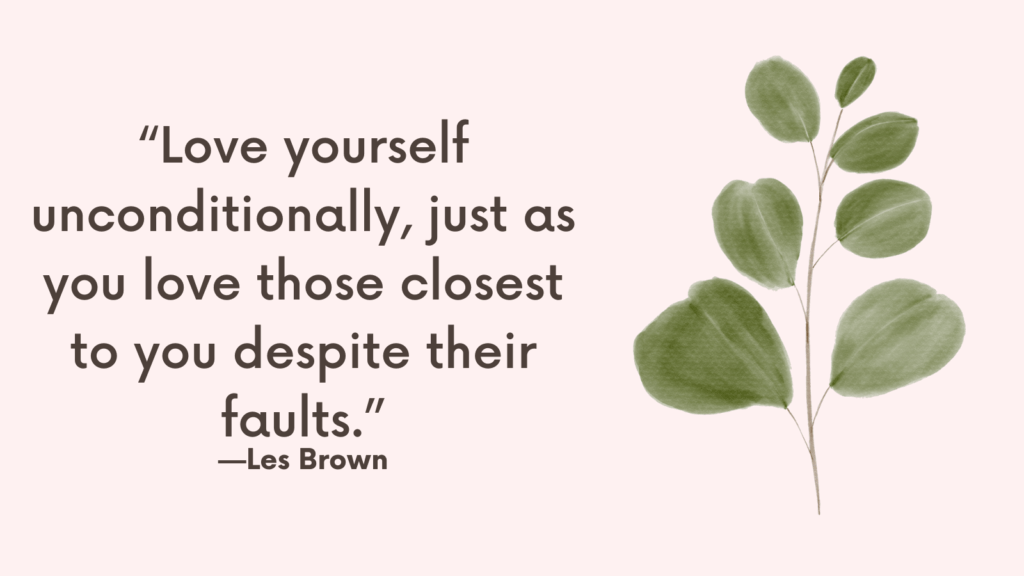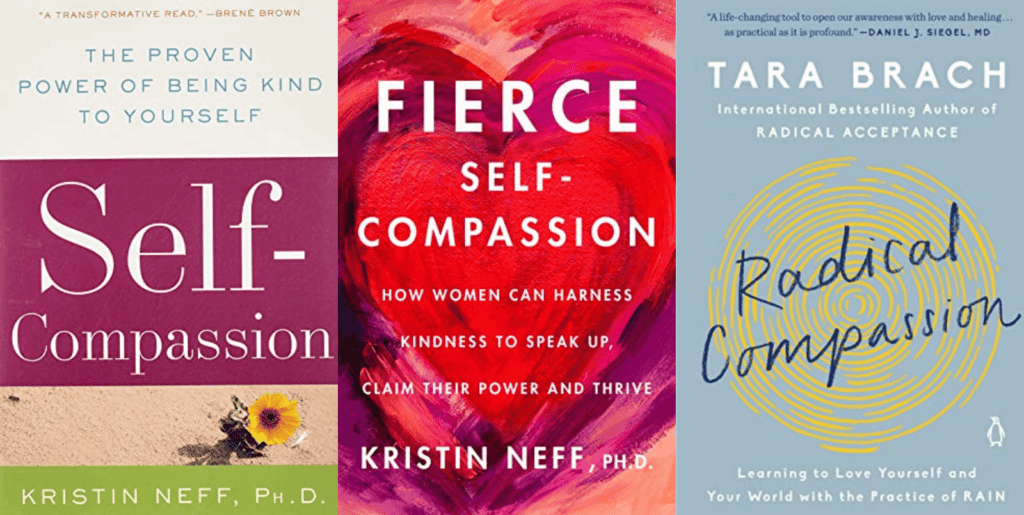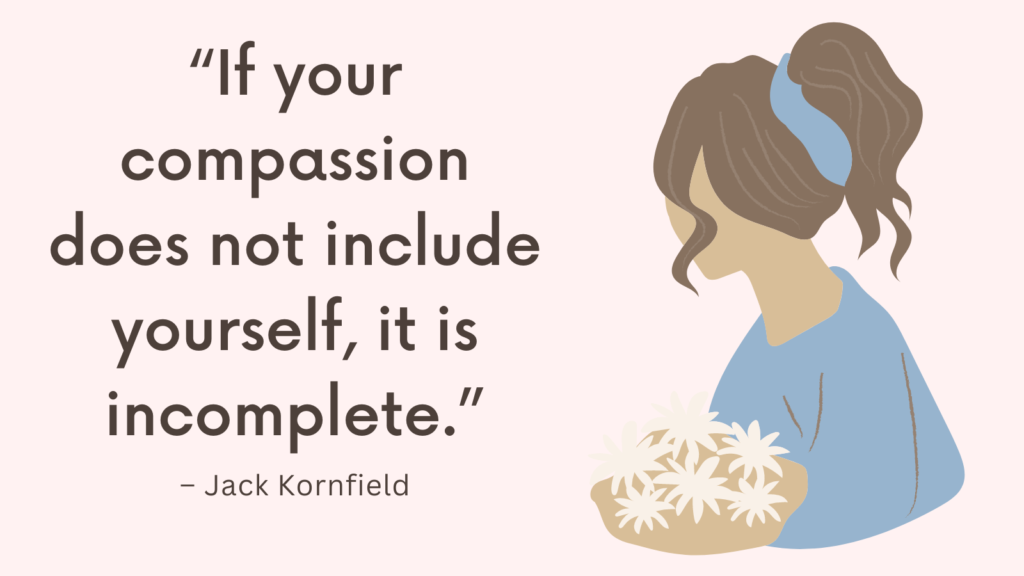This post contains self compassion quiz to help you work on cultivating self-compassion.
What Is Self-Compassion?
Self-compassion is the act of extending the same kindness we would offer others to ourselves.
Self-compassion also requires acknowledging past mistakes and hurt without judgment.
Self-compassion allows us to work through our difficult emotions.
Related: How To Be Gentle With Yourself? Top 5 Ways To Practice Self-Compassion
The Three Elements Of Self-Compassion
According to Kristin Neff, Ph.D. is a pioneer in the study of self-compassion, there are three elements of self-compassion: Self-kindness, common humanity, and mindfulness.
1. Self-kindness is a supportive and warm attitude toward ourselves that aim to alleviate suffering.
2. Common humanity is about recognizing that suffering is a shared experience and that someone, somewhere is going through the same struggle.
3. Mindfulness is the ability to acknowledge our discomfort instead of running away or pretending it’s not there.
Related: How To Start A Self Love Journey? Top 10 Powerful Ways to Love Yourself More
Self-Esteem Vs. Self-Compassion
Self-esteem reflects how confident we feel in our abilities and worth. It is directly related to our accomplishments and may go up and down depending on accomplishing we feel.
Self-compassion, on the other hand, is the ability to show ourselves kindness even when we struggle. It is steady no matter what the circumstance. As a matter of fact, we may feel more self-compassionate when we’re suffering.
What does it sound like?
e.g., made a mistake at work
Self-esteem response: “I know I can face any challenge. I have all I need to overcome this and succeed.”
Self-compassion response: “I’m not alone in my suffering. Everyone makes a mistake every now and then. I take time to honor my pain and forgive myself fully.”
Related: Best 18 Self Compassion Journal Prompts (+FREE Worksheets)
Self Compassion Quiz
The following questions represent common signs of self-compassion:
Results
#1. Do you usually allow yourself to make mistakes and see them as learning opportunities?
#2. Do you often allow yourself to experience and sit with all of your emotions, including difficult ones?
#3. When you fail or make mistakes, do you often try to soothe your pain with kind words and deeds?
#4. Are you often able to see suffering and struggling as part of the shared human condition?
#5. Are you as kind to yourself as you are to other people?
#6. Do you believe you’re good enough and worthy, even though you’re not perfect?
#7. Do you often choose to view difficult situations in a balanced way rather than fixating on everything that’s wrong?
We will not sell your information. All results are kept confidential.
This quiz is for informational purposes only. It is not meant as a diagnostic or assessment tool.
Results
The questions above represent common signs of self-compassion. If you answered yes to most of these questions, then you have a healthy level of self-compassion.

How to Cultivate Self-Compassion?
#1. Allow Yourself To Feel You Emotions
Mindfulness is one important element of self-compassion.
Mindfulness helps us observe the present experience without judgment.
When we’re not in touch with our own feelings, it can be difficult to name our experience.
It can be easier to pay attention to your bodily sensations and then identify feelings and thoughts.
Example: my muscles are tense.. I’m clenching my teeth.. I’m frustrated because of what my coworker said.
Related: How To Feel Your Feelings? Top 9 Difficult Emotions To Cope With In Healthy Ways
#2. Recognize Your Imperfections
Because of our human condition, we are all flawed and imperfect.
The acceptance of this fact is part of the practice of self-compassion.
Start giving yourself permission to be human.
Write down any flaws and shortcomings you have and in front of each one, give yourself permission to have by writing something like, “It’s okay to be…).
Example: I am clumsy. à It’s okay to be clumsy.
Related: Lack Of Self Awareness: 5 Signs & 5 Tips On How To Increase Self-Awareness
#3. Manage Negative Thoughts
Think about a situation that brings difficult feelings.
This might be past painful experience or a future event you’re worried about.
Notice what thoughts come to mind and write them down on a paper.
Once you’ve identified the thoughts, try not to focus on whether it is true or not.
Instead, ask yourself if this thought is helpful to your growth and self-love journey
If not, try to respond to that thoughts in a supportive way as if you’re talking to a friend who has that same thought.
Related: How To Stop Self-Critical Thoughts Using These Top 10 Techniques
Conclusion
Offering ourselves self-compassion when we’re suffering can be challenging.
But with practice, it will become second nature.
Self-Compassion FREE Resources
Self-Compassion Guided Practices and Exercises
TED Talk: Weiyang Xie: Dare to rewire your brain for self-compassion







